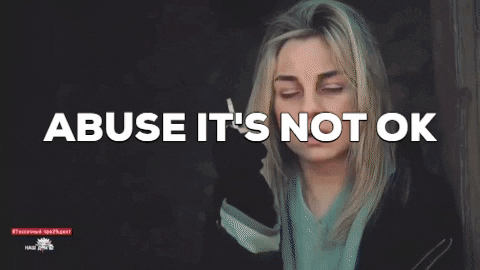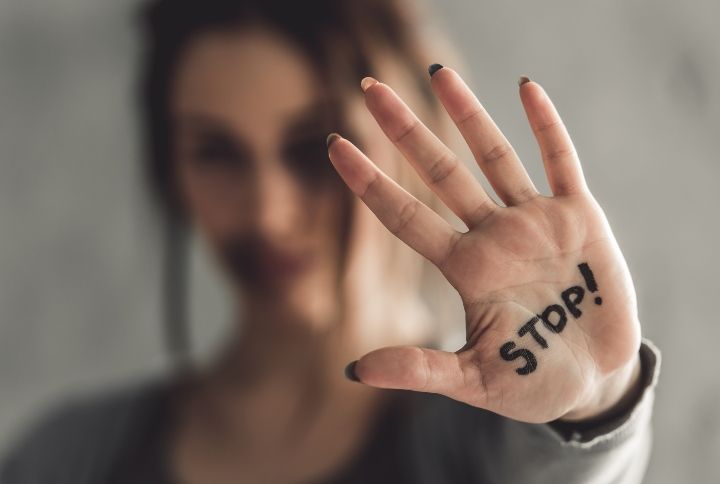Around the world, efforts continue to fight two pandemics—the COVID-19 pandemic that threatens lives, and the economic pandemic that threatens the livelihoods of millions. But there is a third pandemic that receives little attention although it is just as potent–increasing violence against women.
For many women in India, the government’s ‘Stay Home, Stay Safe’ appeal is ironic, because for them ‘safe’ and ‘home’ are not synonymous. According to data, during the first four phases of the lockdown, Indian women filed 1,477 domestic violence complaints, more complaints than recorded in a similar period in the last 10 years. But this is only the tip of the iceberg as 86% of women who experience domestic violence do not seek help.
Since October is Domestic Violence Awareness Month, we reached out to Dr. Shruti Kapoor, Founder of Sayfty, to help us understand the legal recourse available for survivors of domestic abuse. Sayfty is an organisation working towards empowering and educating women and girls against gender-based violence. Here are some commonly asked questions from the Domestic Violence section of their Sayfty Survivors Toolkit. Read on to know what constitutes domestic violence, what to do when facing violence, the helplines available for women in India, and more.
1. What is domestic violence?
Domestic violence is abuse that a woman may be subjected to in a shared household. The abuse can be subjected by the family and it can be in the form of physical, psychological, verbal, emotional, sexual or monetary abuse.
2. How do I know if I am facing domestic violence?
If you feel that your partner or members of the family with whom you live in the same house are being violent, intimidating or abusive, then these are signs of domestic violence.
Instances of domestic violence could begin with the victim being criticised, facing verbal abuse, etc. The victim may be subjected to physical violence which may include acts of pulling, grabbing, pushing, slapping, etc. Your partner may try to control you and your actions, bully you, physically harm you, or control your finances. You may feel emotionally fragile, a loss of confidence, low self-esteem and/or blame yourself.
Often after the incident, the abuser(s) apologises for the “mistake” and then continues behaving in the same manner.

3. What should I do if I am facing domestic violence?
If you are a victim of domestic violence, you might be afraid or choose not to speak up and/ or report. You may fear that reporting may add to the situation or even cause harm to your children.
Here are ways you can seek support:
- NGOs in and around your area can provide support such as shelter or counselling. If you choose to report, the NGO can also guide you through the legal options available. Here is a list of NGOs you can seek help from.
- Report the incident(s) of domestic violence to the police station or on the National Commission of Women website. If you cannot go to the police station, dial 100 or the NCW helpline (011 2694 4805). During the lockdown imposed by the Government of India, NCW has also notified a Whatsapp number (+91 7217735372) to report.
- Approach the Protection Officer in your area who will guide you through the legal process, and help you access medical help and shelter.
Domestic Violence Helplines
- Police – 100
- Women’s Helpline number: 181 or 1091
- Domestic violence helpline by the National Commission For Women – +91 7217735372
- Single emergency helpline number for immediate assistance to services such as the police and women’s helpline – 112
- The emergency number for transgender and men who have sex with men (MSM) community – 1800-2000-113
4. What are the laws available for victims of domestic violence?
The Protection of Women from Domestic Violence Act, 2005 is the relevant legislation in India which addresses domestic violence specifically. Further section 498-A of the Indian Penal Code, 1860, which addresses cruelty, governs incidents of domestic violence.
A domestic violence complaint is normally filed against “family” i.e. people the victim has a domestic relationship with. The victim can be related to her abuser(s) by blood (like parents or siblings), by marriage (like husband, in-laws), or her partner (live-in relationship), or by living together i.e. with the extended family. The abuser(s) can be either male or female.
5. What is the procedure for filing a domestic violence complaint?
The victim or anyone on behalf of the victim can file the complaint. A victim of domestic violence can approach either of the options listed below for filing the complaint.
- Police Station – The police will register a First Information Report (FIR) or Domestic Incident Report (DIR) or will direct the victim to a Protection Officer in charge in the area.
- Protection Officer – A Protection Officer is the first point of contact for domestic violence cases in a district. A Protection Officer will help the victim file a DIR and file a case in court.
- National Commission for Women (NCW) – NCW is empowered to investigate complaints related to domestic violence, dowry harassment or sexual assault. NCW will help monitor and expedite investigations led by local police, provide the option of counselling/ mediation, where the dispute can be resolved without having to go to court, and constitute an Inquiry Committee which makes spot enquiries, examines witnesses, collects evidence and submits a report to NCW with recommendations regarding the complaint. The NCW also has an online portal where a victim can file a domestic violence complaint.
6. Will the abuser(s) get immediately arrested on filing a complaint?
It is unlikely that the abuser(s) will be arrested instantly on the filing of a complaint. The Supreme Court came out with guidelines for arrests in domestic violence cases to prevent any misuse of the law. An immediate arrest can be made in cases where the victim has suffered grave injuries.

7. Court Procedure
An application will be required to be filed by the victim, with the assistance of a lawyer before the Magistrate, in which the victim will have to state the type of reliefs she seeks from the court. It may include protection orders, residence orders, directions for monetary relief, a grant of compensation or damages and interim orders. A victim may engage a lawyer, seek help from her Protection Officer, or ask an NGO to help her secure legal aid.
The police officer, Protection Officer, service provider or Magistrate who has received this complaint shall inform the victim about all the reliefs she can avail and her rights under the law.
At the time of filing the complaint, the victim will need to disclose any previous or pending cases that may have been filed between the parties under the Indian Penal Code, Criminal Procedure Code, Hindu Marriage Act, and Hindu Adoptions and Maintenance Act. The victim will further be required to disclose if any application for maintenance has been filed and if any interim maintenance has been awarded to the victim thereunder.
The Magistrate shall fix the first date of hearing, within three days from the date of receipt of the application by the court.
A victim is entitled to a protection order from the abuser, a custody order (of her children), monetary relief, her right to secure housing, and access to medical facilities. The victim can seek immediate protection from the abuser(s) and the court can make such orders at the preliminary stage of hearing. The Magistrate will grant protection for a temporary but fixed duration until it feels that the order is not required due to change in circumstances. The Magistrate may depend on the situation, pass orders for shelter, residence, interim custody and monetary relief. It may also pass restraining orders to protect the victim from the abuser(s).
As per the Act, all complaints are to be heard and disposed of in 60 days. If any party is aggrieved by the order passed by the Magistrate, then it can file an appeal against the said order.
To learn more about addressing crimes against women, check out Sayfty‘s app MyAmbar, created to help survivors of sexual violence and allies.
What would you like to understand about domestic violence? Please share it with us in the comments below!
Join Malini’s Girl Tribe on Facebook to be a part of more such conversations!

